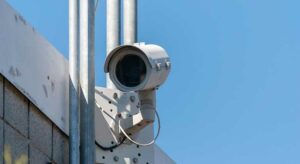SYDNEY — The Australian government will examine surveillance technology used in offices of the defense department, Defence Minister Richard Marles said on Thursday, amid reports that Chinese-made cameras installed there posed a security risk.
The checks come after Britain in November asked its government departments to stop installing Chinese-linked surveillance cameras at sensitive buildings, citing security risks.
Some US states have banned vendors and products from several Chinese technology companies.
“This is an issue and … we’re doing an assessment of all the technology for surveillance within the defense (department) and where those particular cameras are found, they are going to be removed,” Marles told ABC Radio in an interview.
Opposition lawmaker James Paterson said his own audit had revealed almost 1,000 units of equipment by Hangzhou Hikvision Digital Technology and Dahua Technology Co – two partly state-owned Chinese firms – were installed across more than 250 Australian government offices.
Paterson, the shadow minister for cyber security and countering foreign interference, urged the government to urgently come up with a plan to remove all such cameras.
Marles said the issue was significant though adding: “I don’t think we should overstate it.”
Hikvision said it was “categorically false” to represent the company as a threat to Australia’s national security as it could not access the video data of end users, manage end-user databases or sell cloud storage in Australia.
“Our cameras are compliant with all applicable Australian laws and regulations and are subject to strict security requirements,” a spokesperson said in an emailed response.
Dahua Technology did not immediately respond to a request seeking comment.
‘MEASURED APPROACH’
Nigel Phair, an expert on cyber security at the University of New South Wales, said the government was taking a cautious approach.
“The concern is that these are Chinese manufactured cameras and there’s data being collected which is going back to the Chinese state,” he told Reuters.
“They are being very cautious and that’s not a bad thing in the online environment. We should take a measured approach and we should be looking at where the risks are, where the vulnerabilities are and then produce appropriate controls around that.”
Australian media reported on Wednesday that the national war memorial in Canberra would remove several Chinese-made security cameras installed on the premises over concern about spying.
Australia and China have been looking to mend diplomatic ties damaged in part by a 2018 Australian decision to ban Chinese tech giant Huawei from its 5G broadband network.
Relations were later damaged further by an Australian call for an independent investigation into the origins of COVID-19.
China responded with tariffs on several Australian commodities.
Prime Minister Anthony Albanese said he was not concerned about how China might react to the removal of cameras.
“We act in accordance with Australia’s national interest. We do so transparently and that’s what we will continue to do,” Albanese told reporters. — Reuters







